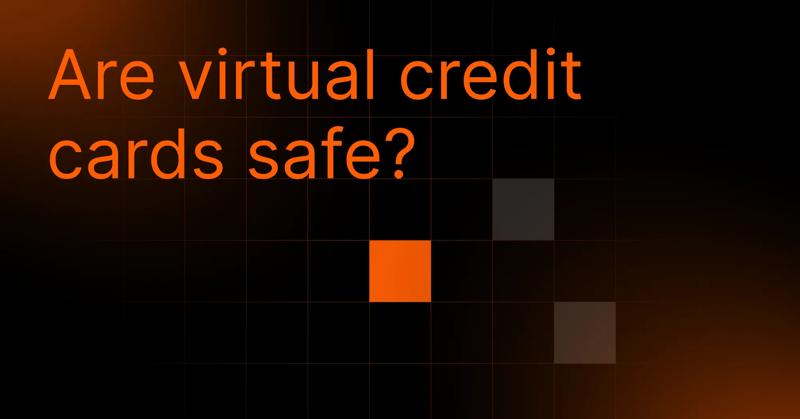Venmo safety 101: 10 Venmo scams and how to avoid them
Venmo's instant money transfers make splitting bills and paying friends effortless. However, this convenience attracts scammers who exploit the platform's social features and irreversible payments to steal money from unsuspecting users. From fake payment requests to account takeovers, Venmo scams cost users millions annually. In this guide, we’ll look at the red flags to watch for and the steps you can take to keep your money and personal information safe on Venmo.

Is Venmo safe?
Venmo is generally safe to use for sending and receiving money. The risks associated with Venmo come from scams that target people using the app. Because Venmo makes transferring money fast, scammers often exploit this convenience to trick people into sending payments.
The key to staying safe is protecting your Venmo account information or any financial data linked to Venmo. As long as your login credentials, banking data, and other sensitive information remain secure, using Venmo is safe.
How do Venmo scams work?
Venmo scams are designed to quickly steal money or financial information from victims. Scammers pressure targets to pay upfront or engage in bait-and-switch schemes where promised goods or services never materialize. A typical Venmo scam works like this:
- The scammer reaches out to a targeted victim, often providing an attractive offer or creating a sense of urgency through a supposed emergency.
- The victim is persuaded, pressured, or tricked into sending money to the scammer’s own Venmo account or a bank account.
- Once the Venmo payment is made, the scammer either transfers the money to their own accounts or uses the money for other financial transactions.
The 10 most common Venmo scams to look out for
Fraudsters use various tactics to manipulate or threaten users into transferring funds to them. Below are some of the most common Venmo scams you need to know about.
1. Venmo email scams
Venmo email scams typically rely on spoofing or phishing tactics that imitate legitimate financial institutions to trick victims into sending cash payments to a scammer’s Venmo profile. By using a familiar communication channel (email), scammers create a false sense of trust, making their requests appear more credible.
These scams often include messages that instill urgency, pressuring victims to act quickly without verifying the legitimacy of the request. Some emails may contain malicious links or direct you to a fake website where scammers try to capture your account details.
2. Venmo impersonation scams
Some scammers attempt to impersonate people or organizations that victims are likely to trust. Impersonations may include friends, family, trusted financial institutions, government organizations, or even official Venmo support teams.
The best way to avoid these scams is to ignore suspicious messages entirely. If you can verify the sender’s identity through another method, conduct your own investigation before taking any action. Some impersonation attempts are also easy to disprove right off the bat. For example, it’s unlikely that your bank or a federal agency would contact you through Venmo. This advice is also relevant for Zelle scams.
3. Venmo call scams
Some scammers use more direct methods to target their victims, like calling their number. These calls may involve claims about a lost or stolen credit card, updates on a credit report, or requests to validate a payment method. All of these tactics are designed to get you to engage and share personal or financial information, which the scammer can then use to threaten you into sending them money through Venmo.
These scams are particularly dangerous because they can escalate into more severe forms of fraud like identity theft. To protect yourself against this type of scheme, avoid answering calls, messages, or any communication from people you don’t know or can’t verify.
4. Overpayment scams
A Venmo overpayment scam involves a scammer sending you too much money, often from a stolen account, and then asking you to refund the “excess” amount. If you send the refund, the original payment will eventually be reversed by Venmo, leaving you to lose the money you sent to the scammer and the funds from the initial "overpayment."
To avoid these scams, contact Venmo support immediately once you receive money from any unknown source. Requesting Venmo to reverse a transaction helps protect you from being involved in schemes like credit card fraud. It also alerts Venmo to accounts that are being used for scams.
5. Facebook Marketplace Venmo scams
Similar to overpayment scams, Facebook Marketplace scams often involve the use of Venmo to receive, send, or steal money from victims. These scams can be elaborate but usually involve the victim sending a “deposit” to a Venmo profile before goods are released. The scammer then withdraws this deposit, and the product or service is never delivered to the victim.
These scams can be avoided by insisting on cash payments or having the goods/services delivered before sending money through Venmo. If a down payment is requested, ensure that the amount never costs more than the value of the actual item. Additionally, whenever possible, enable Venmo’s Purchase Protection Program to help safeguard your payment.
6. Prize or job scams
Some Venmo scams involve fake prizes or job offers that claim to be legitimate but require the victim to pay a “processing fee.” Like Facebook marketplace scams, these fees are never paid back by the scammer. And once the transaction has been completed through Venmo, the victim can’t reclaim the money.
In more sophisticated versions of these scams, scammers may send you a malicious link. Clicking this link can install malware on your device or lead you to a fake website asking for your personal or financial information. To avoid these scams, never click on suspicious links, refuse any job offers or giveaways that ask for processing fees, and ensure that all transactions are conducted through the official Venmo app.
7. Venmo business account scams
Venmo business account scams often involve phishing attempts via fake emails or texts to steal login information, fake payment receipts prompting you to release goods before payment has gone through, or requests for verification codes to gain unauthorized access to your account. Verification code scams are particularly dangerous because they can attempt to bypass your Venmo account’s two-factor authentication to gain full access to your funds.
To avoid these scams, be on the lookout for any suspicious messages, requests, or unusual behavior from anyone you’re performing a transaction with, especially if they know you’re using a business account. Never share verification codes, passwords, or any other sensitive account information that can be used to access your Venmo account or linked financial accounts.
8. Romance scams
Romance scams occur when a scammer (typically posing as a romantic interest online) develops a relationship with a victim to gain their trust before asking for money via Venmo. The scammer often fabricates an emergency to convince the victim to send funds for travel, medical fees, or other made-up expenses.
This scam is particularly dangerous because victims may end up sending significant amounts of money before realizing they’re being defrauded. To prevent this, always be wary of anyone you meet online who asks you for Venmo payments. Romance scammers may also attempt to impersonate former romantic interests to extort money from you. Ignore these messages and verify the identity of anyone asking for financial assistance.
9. AI scams
Venmo has introduced AI capabilities to its payment platform to help catch scammers, but scammers themselves have also been using AI to better target victims. AI tools can make many scams look more legitimate by creating content that sounds human. These tools can also help scammers target more victims by automating the process of contacting potential victims.
The best way to protect yourself against these scams is to always be vigilant about the messages or requests that you get on Venmo. In addition, thoroughly screen anyone who wants to send or receive money through the app. Doing so reduces the chance that a scammer sees you as an easy target and helps prevent further risks, such as identity theft or fraud.
10. Blackmail or extortion scams
Some scammers may use Venmo to collect blackmail or extortion payments from their victims. While Venmo isn’t the main driver of these scams, its status as an accessible payment platform makes it a popular tool for these types of schemes.
If you’ve been blackmailed or extorted, ensure that the proper authorities, like the police, are notified about your situation. Avoid paying the money requested or delay payments until you’ve informed the authorities. Any payments you made are unlikely to be returned to you, but they can be used as evidence in court once the criminal has been caught.
How to stay safe on Venmo
If you want to keep using Venmo while minimizing your exposure to scams, you can take some measures to protect yourself and your funds.
1. Enable 2FA
Like most apps, Venmo offers a two-factor authentication feature that provides an additional layer of account security beyond your password. You can enable this feature in your app’s settings. You can choose to receive authentication codes through text messages or an authenticator app.
2. Monitor your credit account
If your Venmo account is linked to a credit card, always check that card’s statements for any unauthorized or suspicious transactions. In the event that your Venmo account is compromised, criminals may commit credit card fraud to make unauthorized purchases or transfer money to their own Venmo accounts.
3. Don’t share personal, sensitive, or account information
Never disclose details about your personal life, financial credentials, or information related to your Venmo account to anyone you don’t fully trust. Scammers can use this information to take control of your Venmo account, break into your other financial or important accounts, or commit identity fraud and credit fraud.
4. Watch for phishing or AI-generated messages
Phishing is one of the most common tactics used by Venmo scammers, largely because recovering funds lost to phishing scams can be extremely difficult. Some scammers now use AI to create messages that appear highly convincing and human-like, making it harder to detect fraud. Make sure to watch out for signs of phishing to reduce your risk of falling victim to these scam attempts.
5. Follow account security practices
Make sure that your Venmo account follows the recommended best practices for security and privacy. Use strong, unique passwords generated by a password manager and keep your devices and software updated.
6. Use credit cards over debit cards
Whenever possible, use a credit card instead of a debit card for Venmo transactions. Credit cards generally provide stronger consumer fraud protections and more robust chargeback options. Venmo charges a fee (usually ~3%) for person-to-person payments made with a credit card, so consider the trade-off between protection and cost. If you must link a debit card, monitor your account closely and report unauthorized transactions immediately.
7. Use an identity theft protection service
If you want to take further steps to prevent identity theft and protect your personal information, consider investing in an identity theft protection service like NordProtect. It can continuously monitor the dark web and alert you if your identity or personal details have been leaked. It can also help monitor your credit accounts.
Scams are in the air!
Save 71% on identity theft protection with fraud insurance
30-day money-back guarantee
View promotion details.
FAQ
Can Venmo refund you if you got scammed?
Does Venmo protect you against scams?
Can someone take back the money they sent on Venmo?
Ugnė is a content manager focused on cybersecurity topics such as identity theft, online privacy, and fraud prevention. She works to make digital safety easy to understand and act on.



